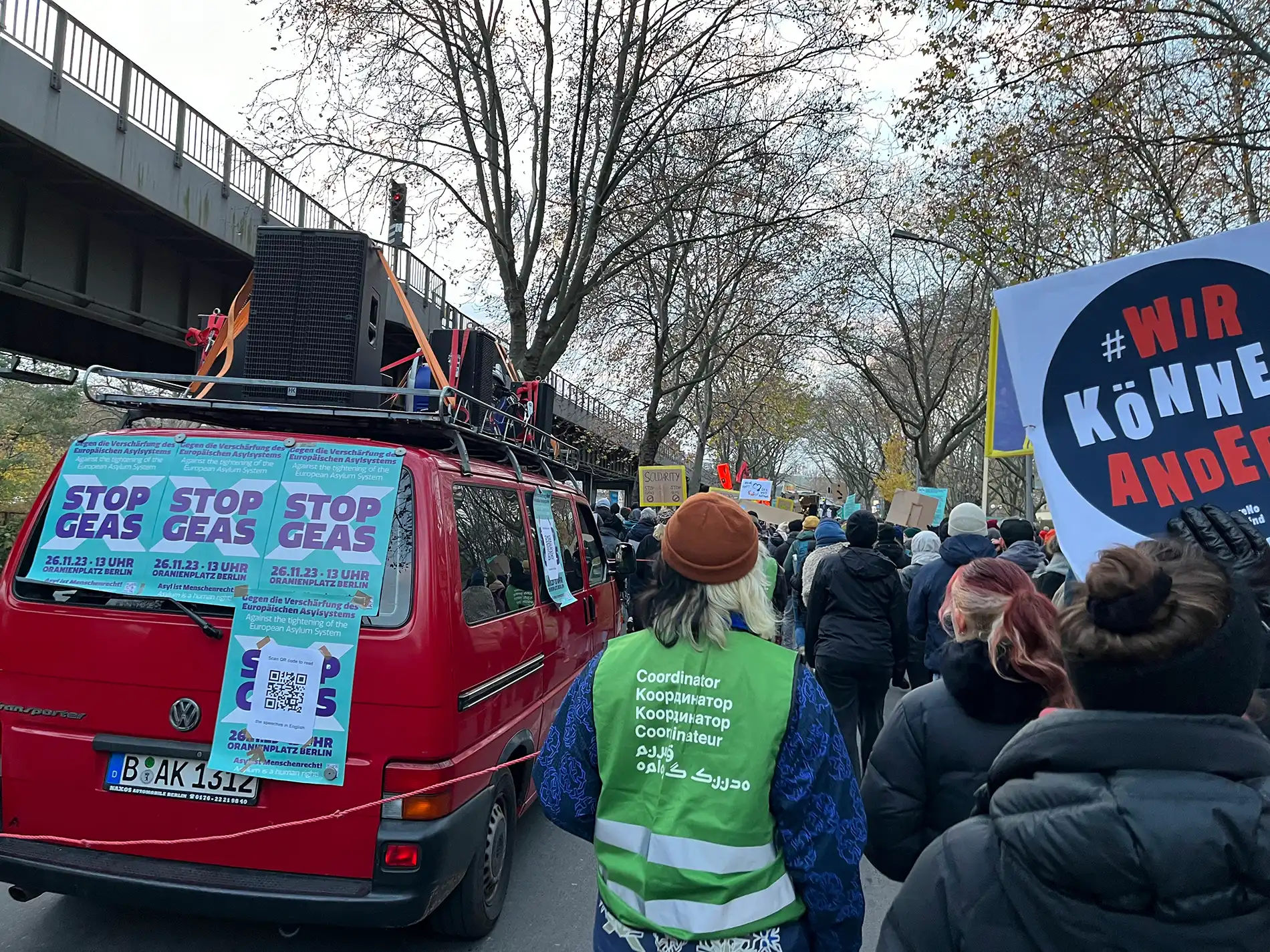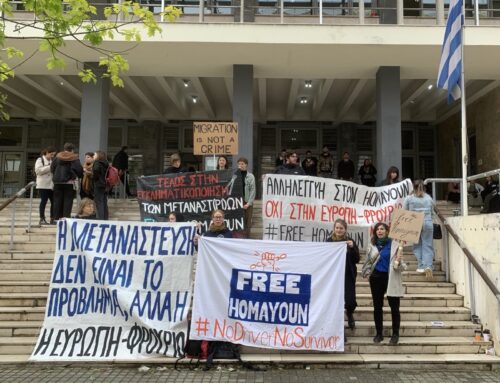Agreement on the CEAS reform – Or: How the EU institutions are abolishing the right to asylum
December 20, 2023

After several days of negotiations, the Council of the EU and the EU Parliament have agreed on key points in the migration reform package. The conclusion: the new laws legitimize serious human rights violations at the external borders and de facto abolish the right to asylum in the EU.
These four key points were agreed:
- The Screening Directiveall member states must carry out mandatory screening within 7 days. This takes place under detention-like conditions and under the “non-entry fiction”. During the screening, people have not yet officially entered the Schengen area and cannot be granted access to EU territory until the procedure has been completed. The screening determines which procedure the person will be admitted to: Border procedure, fast-track procedure, normal asylum procedure or return procedure. The person concerned cannot take legal action or appeal against the screening or its outcome. This regulation threatens to significantly restrict the fundamental rights of refugees. Another part of the screening regulation is the so-called human rights monitoring, which is intended to scrutinize the actions of border guards and authorities. However, this monitoring may only be applied at certain points. Illegal pushbacks by the border protection agency Frontex, for example, are still not being investigated and prosecuted.
- The Asylum Procedure Directive: The Asylum Procedure Directive provides member states with various mandatory procedures. Not all people arriving in the EU will undergo an asylum procedure. People with a recognition rate of less than 20% must now be admitted to a border procedure in which an individual case assessment is replaced by a fast-track procedure and in which the persons concerned are de facto detained for the duration of the procedure. These border procedures will be used for people from “safe countries of origin”. However, contrary to what the German government has repeatedly emphasized during the negotiations, people from Syria and Afghanistan could also be affected. This would be possible if the person entered the EU via a “safe third country”. However, the concept of safe third countries was also successively expanded in the CEAS negotiations and now also includes countries that are considered “partially” safe; also, it is no longer based on the Geneva Refugee Convention. The “return border procedure” introduces a 12-week deportation detention period for persons who have unsuccessfully completed the asylum procedure
- The Asylum and Migration Management Directive: The Asylum and Migration Management Directive provides for a reform of the Dublin procedure. However, the rule that the country of first entry remains responsible for a person’s asylum procedure is kept. What is new about the regulation is the “solidarity mechanism”, which is to be activated in the event of so-called “migratory pressure”. However, other member states do not necessarily have to support with the reception of refugees. They can also simply invest money in border protection in the country concerned or even pay money to third countries that are supposed to stop migration movements. The bureaucratic burden of the Dublin Regulation remains in place. In addition, people who are not in the responsible member state will no longer be given the opportunity to stay and integrate. This means: no employment law, no social benefits, no language courses.
- The Crisis Directive: The Crisis Directive provides for the rules of the CEAS to change once again in situations of “instrumentalisation” or “mass immigration”. If member states perceive an instrumentalisation, they can, for example, admit 50-100% of all protection seekers in border procedures and deny real asylum procedures. A “crisis” can last for up to one year and does not require the involvement of the EU Parliament to be determined. The crisis regulation is therefore susceptible to exploitation by member states.
Related News
We become active where states fail to act. But only with your support!
With our work we put pressure on German politics to take responsibility and finally change something! Your donations will be used for the #LeaveNoOneBehind campaign: For our own projects, as well as for funded projects and organizations that provide urgently needed support at the EU’s external borders and refugee routes.




